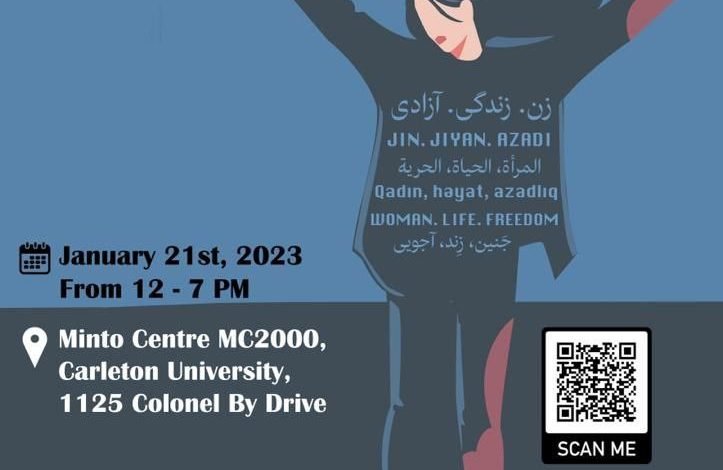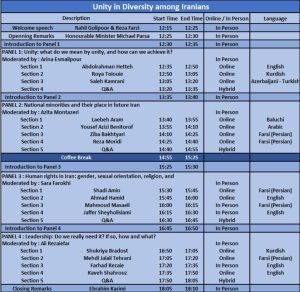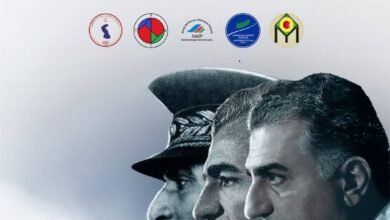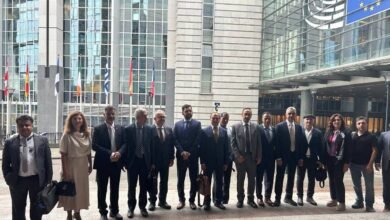
Arabic, Azerbaijani-Turkish, Kurdish and Persian Follow!
Now that Iran is heading for a change, the future of the country and how it should be governed to achieve peace, democracy, and prosperity, is debated in the media on a daily basis and frequently in intellectual and academic circles. These debates, however, are often dominated by centralist ideologies which are adamant that Iran is unique and, thus, a non-centralised system will not be feasible for its governance. The organisers of this meeting disagree and would like to explore alternatives to a centralist state, and to openly discuss the benefits and drawbacks of other potential governing systems.
Our meeting will have four separate panels, with each panel consisting of four diverse panellists, mainly from academia, activism, and law, which will be led by a moderator:
- Panel 1: Unity: what do we mean by unity, and how can we achieve it?
- Panel 2: National minorities and their place in future Iran
- Panel 3: Human rights in Iran: gender, sexual orientation, religion, and language/education
- Panel 4: Leadership; do we really need it? If so, how and what?

Each panellist will have 15 minutes to deliver the speech in their preferred language. 15 minutes is assigned for the Q&A; the questions will be shared with the moderators and will be assigned to expert panellists. Speeches and discussions will be translated into English (from Arabic, Azerbaijani-Turkish, Kurdish and Persian) in real-time by different interpreters. Therefore, it would be beneficial to have access to a laptop (or a smartphone) if you require interpretation.
List of confirmed speakers (alphabetically sorted):
- Shadi Amin
- Laebeh Aram
- Yousef Azizi Benitorof
- Ziba Bakhtyari
- Shukriya Bradost
- Ahmad Hamid
- Abdulrahman Hetteh
- Saleh Kamrani
- Mahmoud Masaeli
- Reza Moridi
- Hon. Michael Parsa
- Farhad Rezaie
- Kaveh Shahrooz
- Jaffer Sheyholislami
- Roya Toloui







